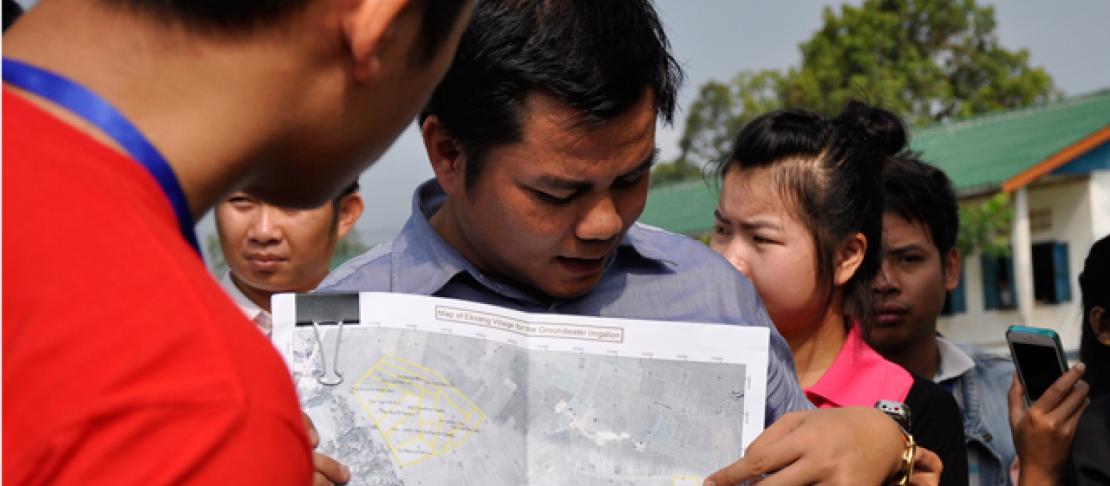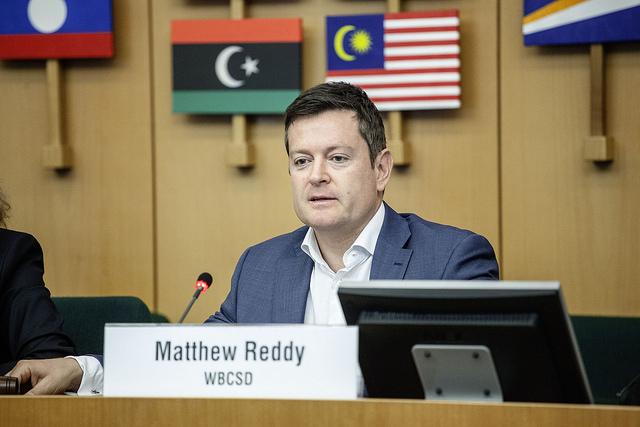Putting science at the heart of climate-smart agriculture

Plenty of advances in knowledge showcased at Second Annual Forum of the Global Alliance for Climate-Smart Agriculture
To ensure that climate-smart agriculture (CSA) delivers on its core goals of improving farmers’ climate resilience, ensuring food security and reducing emissions, solid science is needed. This scientific knowledge includes building an evidence base about how various agricultural interventions and practices can deliver positive outcomes; developing tools to plan and monitor the success of CSA; and a better understanding of how essential services like agricultural extension, can support implementation.
Some of this critical knowledge, developed by the CGIAR Research program on Climate Change, Agriculture and Food Security (CCAFS), and partners, was shared at the recent Annual Forum of the Global Alliance for Climate-Smart Agriculture (GACSA). The forum, held at the FAO headquarters in Rome from 14-17 June 2016, brought together over 300 participants to share knowledge and experiences in implementing Climate-Smart Agriculture (CSA). CCAFS together with the Centre de Cooperation Internationale en Recherche Agronomique pour le Développement (CIRAD), and the Food and Agriculture Organization of the United Nations (FAO) co-organized the sessions pertaining to knowledge for CSA at the event.
Developing the knowledge base for CSA
A key feature of GACSA in supporting its members in scaling up CSA, is its action groups. The GACSA has three action groups, on Knowledge, Investment and Enabling environment, which work towards addressing the needs of members in these thematic areas. The Knowledge Action Group in particular is responsible for increasing and promoting knowledge, research and development into technologies, practices, and policy approaches for climate-smart agriculture, practices and technology sharing and cooperation, improving communication and information sharing among participants, and outreach extension and technical assistance. Its activities are facilitated by 11 facilitators:
- Agricultural Model Intercomparison and Improvement Project
- Asian Farmers' Association for Sustainable Rural Development
- CGIAR research program on Climate Change, Agriculture and Food Security
- Centre de Cooperation Internationale en Recherche Agronomique pour le Développement
- Colorado State University
- Technical Centre for Agricultural and Rural Co-operation
- Food and Agriculture Organization of the United Nations
- Government of Nigeria
- Government of Spain
- Global Forum on Agricultural Research
- UK-China Sustainable Agriculture Innovation Network
In the inception year of GACSA, the Knowledge Action Group was co-convened by CCAFS and FAO, and secured inputs from a network of over 800 CSA practitioners.
What were the actions on knowledge in the inception year of GACSA?
A key part of discussions at the GACSA Annual Forum focused on activities undertaken by the GACSA Knowledge Action Group in the inception year to advance the knowledge-base for CSA. These actions were undertaken in five priority work areas:
- Technical interventions and practices in CSA: Activities included the development of practice briefs on CSA to provide implementation guidance. Practice briefs were developed on Site-Specific Nutrient Management, Integrated Soil Fertility Management, Coffee Banana Intercropping, Gender, and Integrated Manure Management.
- Integrated planning and monitoring for CSA: Activities included the development of approaches for monitoring and evaluating CSA projects, development of a compendium of farm-level CSA practices, data and models for CSA, and assessing options for establishing an online community of practice for CSA learning. Activities are summarized in this report.
- Inclusive knowledge systems for CSA: Building on The Montpellier Statement, Climate-Smart Agriculture: Towards Sustainable Landscapes and Food Systems, elements for designing a relevant research agenda for CSA were identified.
- Support, services and extension for CSA: A compendium on CSA and extension was developed and existing examples of successful index-based insurance approaches are being identified.
- Evidence base of CSA: In collaboration with the GACSA Enabling Environment Action Group, knowledge inputs were provided in the development of CSA Country Case Studies.
What are the knowledge priorities of stakeholders?
A panel of representatives of different stakeholder groups (farmer organizations, private sector, Government agencies, investment community, research community and Non-Governmental Organizations) set out priorities for further actions by the GACSA Knowledge Action Group. These included:
Build capacity: In addition to the activities on knowledge creation, the GACSA Knowledge Action Group should also focus on capacity building for implementation and research. Mr Riad Balaghi from the National Institute for Agronomic Research of Morocco highlighted how developing countries lack capacity in climate related research and education
Combine indigenous knowledge and modern technology: Mr Jethro Greene, Chief Coordinator of the Caribbean Farmers Network (CaFAN), called for a marriage between traditional knowledge and modern technology to help address the challenges posed by climate change.
Be context-specific: CSA technologies and practices need to be adapted to the needs and capacities of different countries, and there should be a sound business case for adoption, explained Ms Margarita Astralaga, Director of the Environment and Climate Division of the International Fund for Agricultural Development.
Embrace ICT: Use of information and communication technologies to gather feedback from farmers, to support peer to peer learning, support implementation, and to develop sound and transparent monitoring systems are major opportunities explained Mr Richie Ahuja, Director for Asia at the Environmental Defense Fund.
Communicate clearly: Mechanisms for delivering knowledge to implementers needs to be improved. Mr Ryudai Oshima, Deputy Director of the Environment Policy office, Ministry of Agriculture, Forestry and Fisheries, Japan pointed out the need for appropriate outreach so that GACSA knowledge reaches the users in a location specific and usable format.
Support global goals: The Sustainable Development Goals and the Intended Nationally Determined Contributions of countries, both offer opportunities to implement CSA with a view to support achievement of these goals. For this, there needs to be sound metrics to measure progress and development of such metrics could be a knowledge priority, explained Mr Matthew Reddy, Director of CSA at the World Business Council for Sustainable Development.

Matthew Reddy, Director, Climate Smart Agriculture at World Business Council for Sustainable Development (WBCSD) speaking about Knowledge for CSA. Photo: Giuseppe Carotenuto (FAO)
What are the next steps in advancing knowledge for CSA?
Based on inputs from the panel, and in-depth discussion in working groups, the GACSA Knowledge Action Group identified priority actions for the next two years. These includes the development of new practice briefs on topics such as water harvesting, agroforestry, diversified maize systems and index-based insurance, and also adapting such technical materials to suit local contexts. Training with farmer extension intermediaries for climate services, development of further CSA case studies, development of CSA X-rays to support decision making, improvement of data and models for decision making, and expanding the compendium of farm-level practices on CSA are other priority actions. Development of a renewed research agenda for CSA and supporting the next CSA Science Conference in 2017 will be key activities. CIRAD and FAO will co-convene the group in the coming year, and support the delivery of actions identified.
If you would like to get involved in the GACSA Knowledge Action Group, please write to climate-knowledge@fao.org.
Dhanush Dinesh is Global Policy Engagement Manager for the CCAFS Program, based at the University of Copenhagen.
